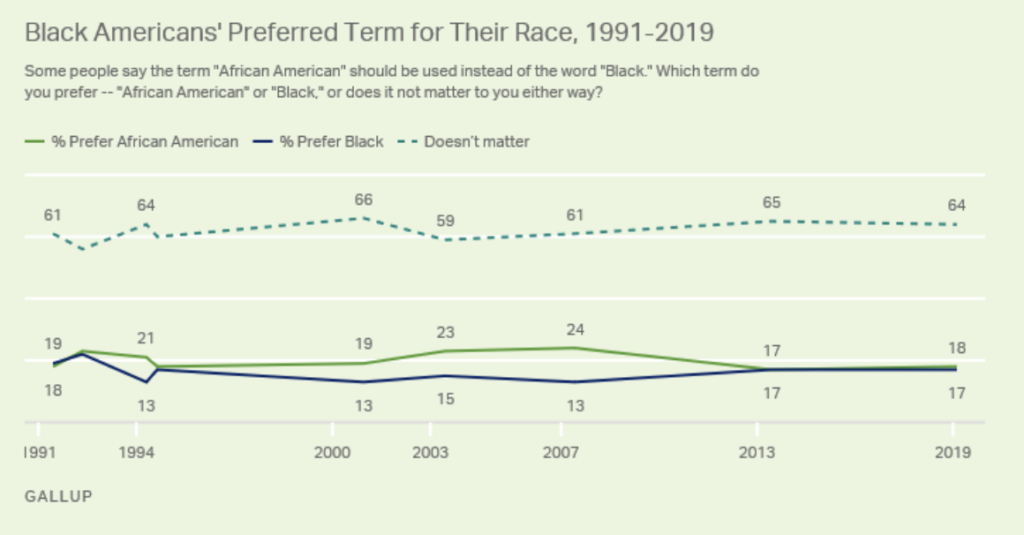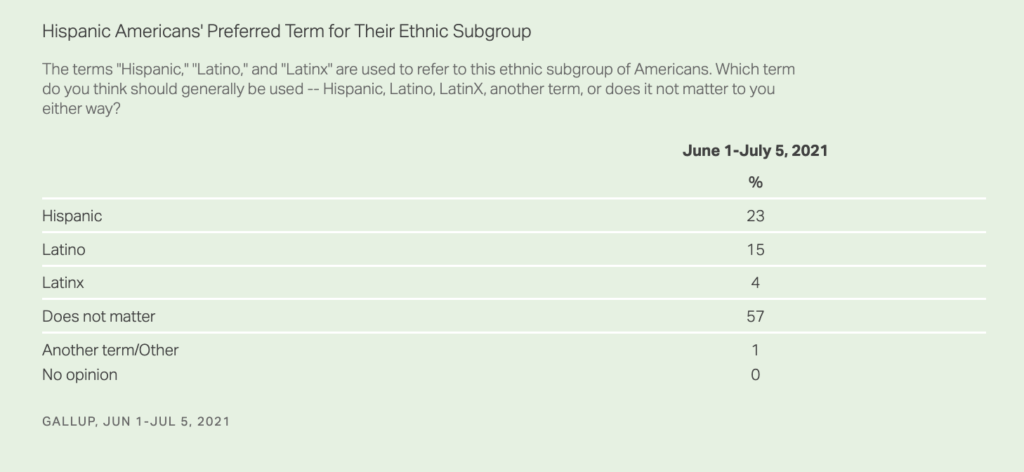If you go to a legislative body, an academic institution, or a progressive rally these days, you will hear a lot of “BIPOC,” “LGBTQ+” and “Latinx” flying around. That might lead you to believe that maybe you should be shifting to use those terms, if you haven’t already. I’m not convinced.
Shifting to new terms is challenging and irksome for inflexible old dogs like me, but that’s not what is giving me pause. I’m very willing to adjust if need be.
The Golden Rule and common decency dictate that I call others whatever they prefer to be called. It’s not okay for me to stick with a term because it’s what I have always used in the past, or what strikes me as best. My preferences don’t matter; theirs do.
This leads me to this question: Are terms like BIPOC, LGBTQ+, and Latinx that are embraced by many progressive elected officials, academics, and activists really what the affected folks prefer to be called? The question matters to me, both because I make an effort to avoid being an ass, and because I communicate for a living.
For me the metric to monitor here is not what activists, academics, and politicians say, but what surveys find the majority of the affected populations prefer we say. They’re not necessarily the same thing.
Gallup has consistently found that a relatively small slice prefers either “Black” (17%) or “African American” (17%), while by far the largest slice indicates that they don’t care (58%). Therefore, if you use either Black or African American, three-fourths (58% plus 17%) are content. When forced by the survey questionnaire to choose, a narrow plurality prefers to be called “Black” (52% prefer) over “African American” (44% prefer).

Gallup didn’t offer up BIPOC as an option. But only 6% of Black Americans indicated “other,” so there doesn’t seem to be a popular groundswell to be called BIPOC. Therefore, I use “Black” in most instances.
Similarly, 57% of surveyed Hispanic Americans indicated that it “does not matter” whether they are called “Hispanic (23% prefer),” “Latino (15% prefer),” or the more trendy gender-neutral term “Latinx (4% prefer).” When Hispanic American respondents are required to choose, 57% choose to be called “Hispanic,” 37% went with “Latino,” and 5% prefer “Latinx.”

Therefore, I go with “Hispanic,” not Latinx.
As far as I know, Gallop didn’t survey Native Americans, and I can’t find anyone who has. It would be helpful to know whether most prefer “Native American,” “American Indian,” “Indigenous American,” “Indigenous,” or something else. I want to get it right.
I also can’t find surveys of Americans who aren’t heterosexual about what they prefer to be called. That also would be instructive.
This issue gets most challenging when you need to use an umbrella term for many multiple groups, which is how we end up with well-intentioned acronyms such as BIPOC and LGBTQ+. But when some insist that the most inclusive alphabet soup be used in situations where it’s not really necessary, one side-effect is to wash out the individuality of each group in the acronym.
For instance, if some Indigenous folks people prefer to be called Indigenous rather than lumped into BIPOC, I could understand why. Acronyms can feel cold and overly formal.
Again, we need to be calling our friends, neighbors, and colleagues what they prefer to be called, not what we or a narrower band of vocal activists, academics, and politicians declare to be acceptable. That’s why these kinds of surveys matter to me. I hope we will see more of them. They identify societal consensus and give well-intentioned people defensible guidance for showing respect and avoiding corrosive battles. America needs that right now.
